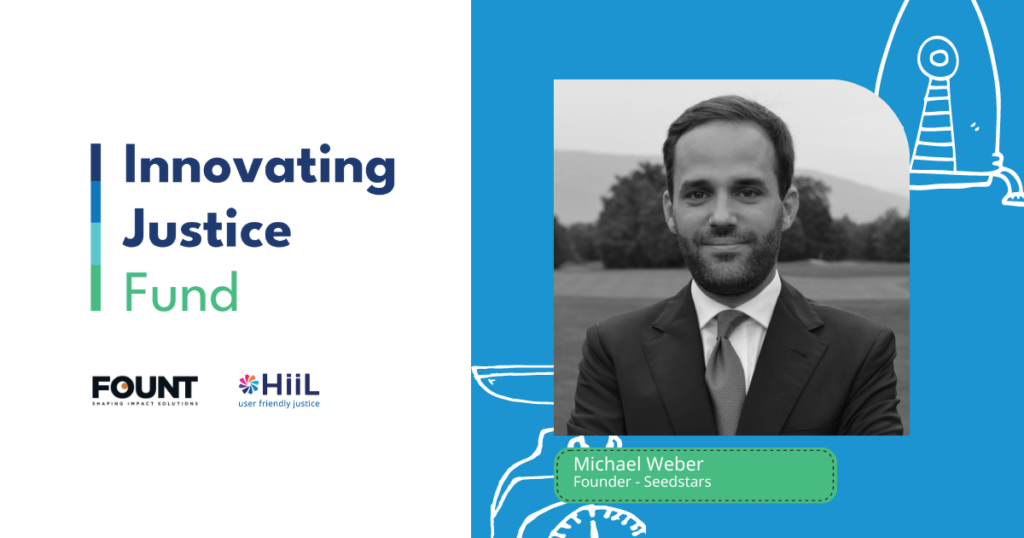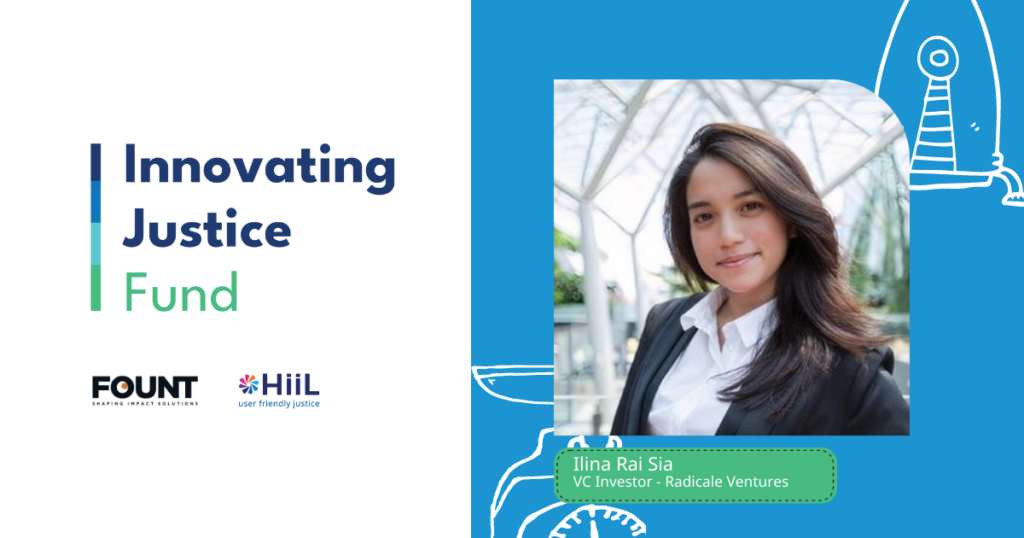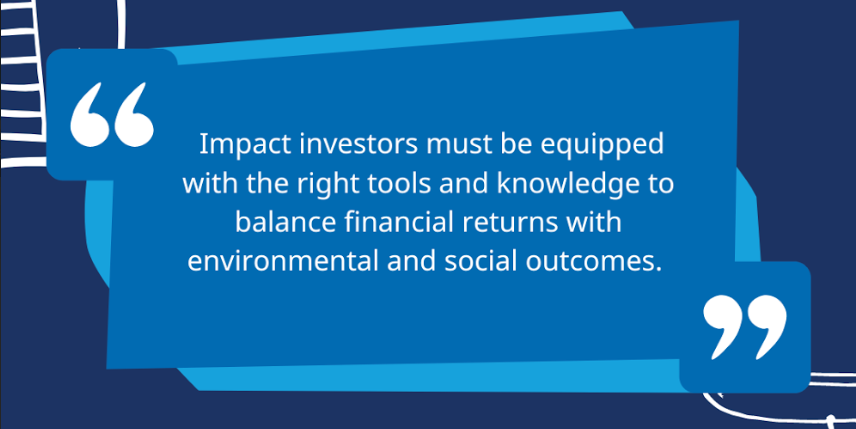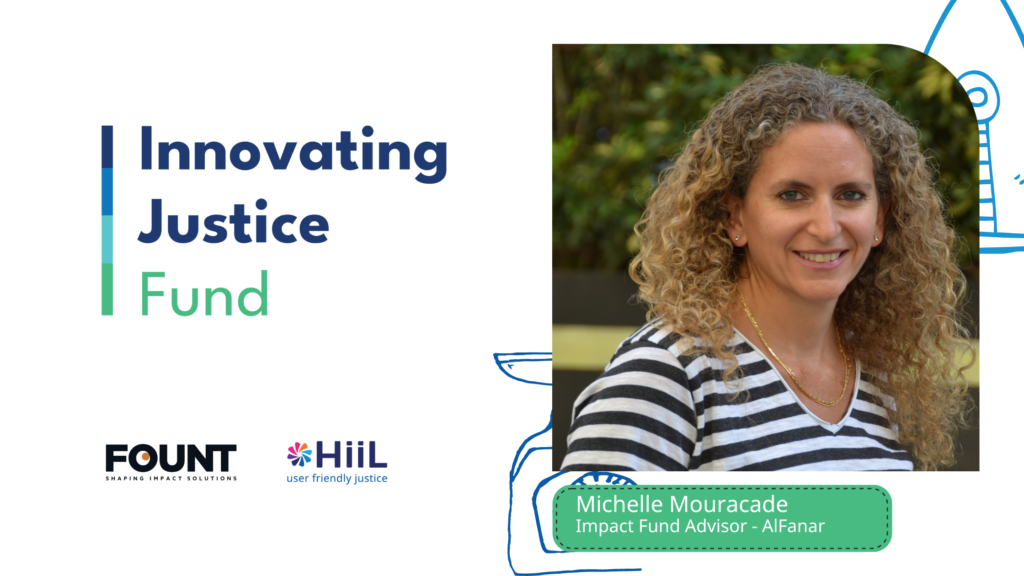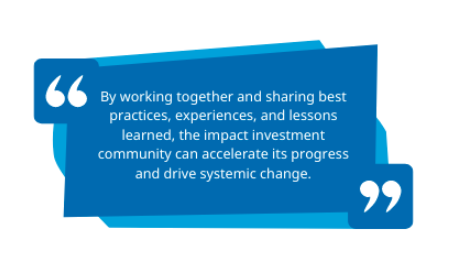Series of articles with investors: impact investment, will it change the world?
Today, we’re back with another interview and a fresh perspective on whether and how impact investment could change the world. The notion of people-centred justice carries the promise of change in the lives of many. In today’s world, technology plays an increasingly crucial role in people’s daily lives. Utilising technology to improve lives by facilitating access to justice seems like the right equation, doesn’t it?
We encourage you to consider the following:
- How many SMEs could sustain their businesses if they easily complied with legal procedures?
- How many people would experience fair working conditions and access to decent jobs if documentation wasn’t complex?
- How many individuals could take control of their finances, save, invest, and plan ahead with access to financial services?
Finally, how many growth and prosperity opportunities are hindered by justice and legal obstacles?
- The short answer is: a lot. This is precisely why Justice-tech has the potential to make a difference in the lives of millions. However, it’s not without challenges. Justice-tech startups encounter numerous obstacles, primarily in establishing a viable business model. Moreover, these startups often don’t receive the attention they deserve from investors. So, once again, we pose the question: Will Impact Investment change the world?
We dive into a different perspective in this discussion of Hope Wandera, a former lawyer who transitioned into the realm of impact investment.
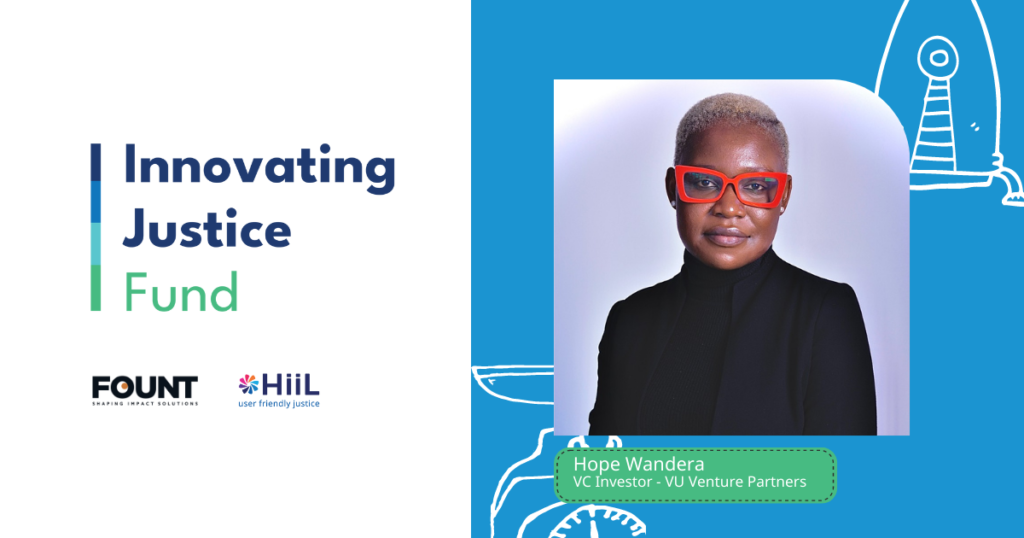
What is Impact Investing from your point of view?
Impact investing involves being deliberate about injecting capital into businesses that are compliant with environmental, social and governance policies in the process of delivering commercial value to clients/customers.
Personally, gender is a very crucial impact parameter. Female founders are over mentored and underfunded. According to Pitchbook female founders received just about 2% of the total global VC funding 2022. My investment thesis is therefore skewed towards unlocking capital for talented and deserving female led, owned and focused commercially viable tech businesses in Africa.
Will it change the world?
Yes. Impact investing will change the world if investors take an embedded approach. Embedding impact basically requires that investors perceive ESG compliance as a means to attaining business objectives rather than the result of attaining business objectives. This approach is more likely to spur meaningful sustainable change. When it comes to gender lens investing, among many others, research conducted by BCG in 2018 demonstrates that women owned startups are a better bet for investors because women are more prudent utilisers of capital 1 . A well-managed business is likely to have greater social change in terms of job creation as well as other direct and indirect outcomes.
So, what needs to be implemented for impact investment to succeed in the mission of changing the world?
In Africa, we fall prey to separating commercial returns and impact. When commercial returns and impact are separated, goal posts shift from investments to charity. This creates dependency and lack of accountability on the entrepreneur which often result in economic stagnation and misuse of capital respectively. Investing in commercially viable businesses are more likely to guarantee sustainable change. Including penalties for failing to share investor updates in legal agreements signed during deal closing can also ensure accountability.
First, investors need to adapt an embedded approach for impact investments to drive any meaningful sustainable change. Second, impact and commercial returns ought not to be mutually exclusive. Third, when perceiving impact from a gender lens perspective, female led decision making is a necessary ingredient for unlocking capital for gender focused businesses. More women ought to be actively involved in deal origination, assessment, closing and post investment support of female led, owned and focused businesses.
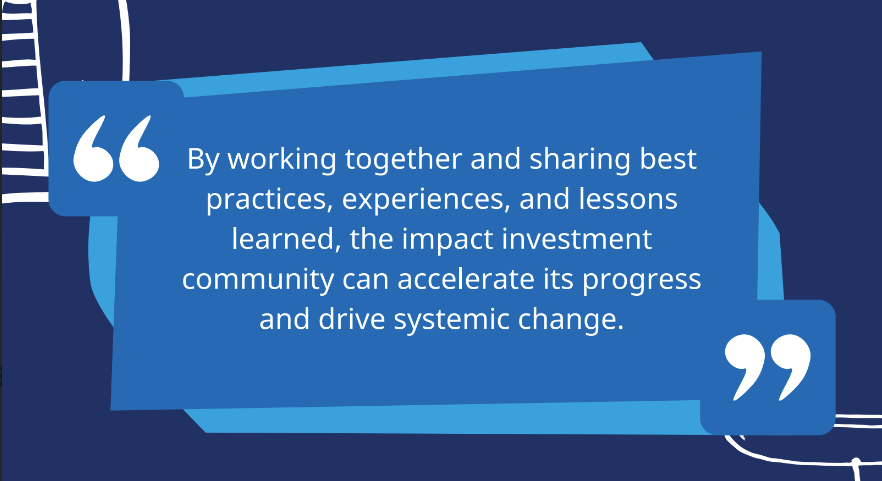
As Hope emphasized, commercial returns and impact go hand in hand. By assisting justice startups in discovering financially sustainable business models, we can create lasting change. At HiiL, we offer comprehensive assistance throughout the entire startup cycle, from ideation to incubation, acceleration, and finally, in collaboration with FOUNT, we have launched the Innovating Justice Fund and Scaling Programme. These initiatives provide highly customized technical assistance to justice startups delivering services in emerging markets. Together, we invest in financially viable justice-tech startups with a significant impact on the field of justice. Let’s collaborate!
About Hope Wandera

Hope is a polymath passionate about tech and venture capital. With
her law and finance background, Hope applies her experience in
strategy consulting, trade & investments advisory as well as
corporate/commercial legal practice to support and invest in African
tech startups. Hope is deliberate about unlocking capital for female-led and owned
tech businesses.
